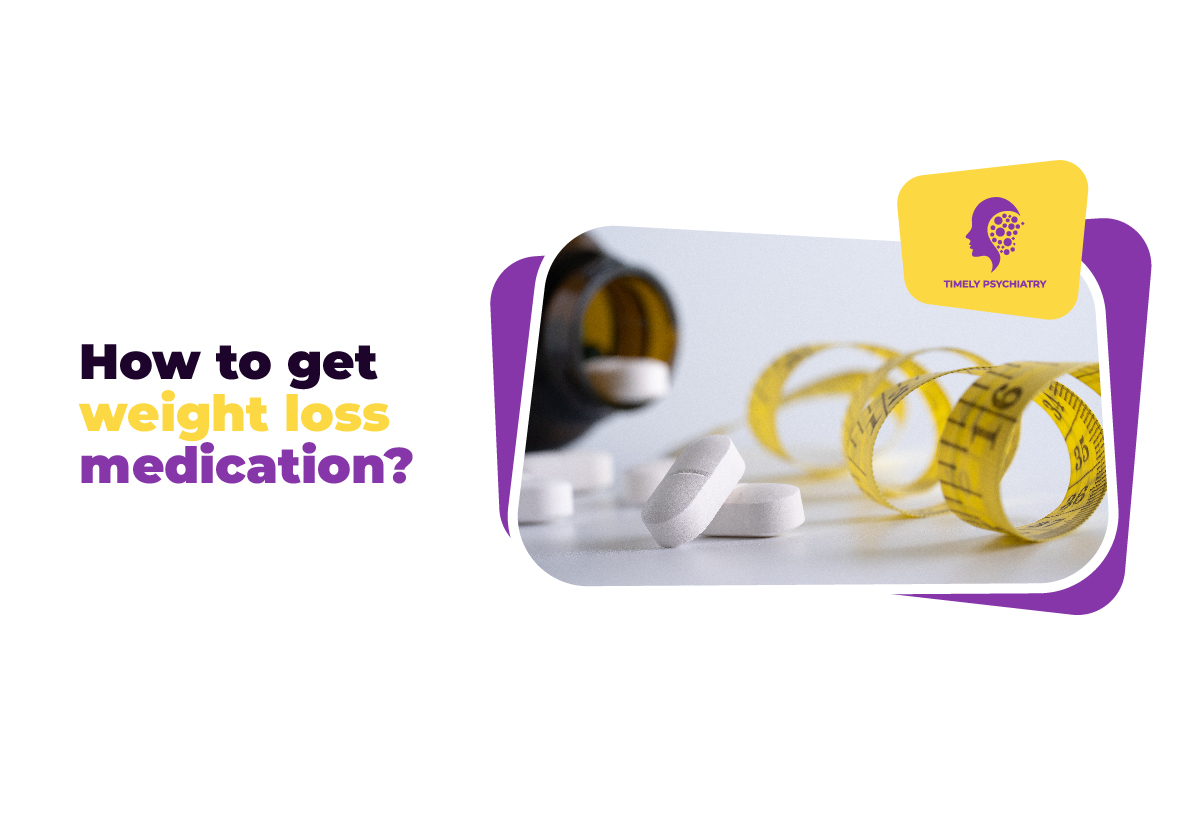Weight loss drugs are offered to some people when diet and exercise are insufficient.
The majority of these drugs act by lowering hunger.
There are several choices available, both with a prescription and over the counter.
Are you continuously trying to reduce your weight but unable to do so? If yes, you may need something related to expert assistance.
You may rely on TIMELY PSYCHIATRY to eliminate the stress of weight loss and gain some valuable insights from our health professionals.
How Does Weight Loss Medication Work?
Weight loss drugs usually operate by decreasing a person’s appetite.
It is only partially apparent how GLP-1 medicines function.
Studies have shown that these medications assist in suppressing hunger and moderate appetite.
According to research from 2021, these drugs can aid in weight loss by decreasing energy intake while raising energy expenditure.
Another form of weight loss drug is an anorectic. Furthermore, it is said that they inhibit hunger, reduce fat absorption, and promote feelings of fullness.
Contact us for further information and assistance from our qualified health professionals.
Most Potent Weight Loss Prescription Pill
GLP-1 agonists are now the most active anti-obesity drugs, and they are safe for long-term usage.
Currently, there are few medicines licensed for weight loss. These include:
- Liraglutide (Saxenda)
- Semaglutide (Wegovy)
- Orlistat (Xenical)
Nevertheless, certain additional GLP-1 medications may be prescribed off-label.
How To Ask Your Doctor for Weight Loss Pills?
You may ask your doctor about the weight loss pills through an open and honest conversation. You can simply seek help from the doctor to tell you about the pros and cons of the pills you are going to use.
Are you often in search of weight loss pills that work?
If you are having difficulty managing your weight, your doctor can give weight loss advice. They can provide recommendations to nutritionists, therapists, and support groups, as well as prescriptions for weight loss drugs.
You’re not alone if you’re concerned about discussing weight reduction with a doctor.
Before seeing a doctor, you can prepare for a weight loss discussion by:
- Taking down notes about your medical history
- Making a list of your weight-related questions.
- Considering keeping a diet or exercise journal to discuss with your doctor, as well as researching
- Reviewing your insurance coverage for weight loss services
Additional Resources:
Who Can Take the Weight-Loss Medication?
In some situations, your doctor may recommend a weight loss medication for you. These include if you haven’t been able to lose weight with diet and exercise.
- BMI of 30 or higher. This suggests you have obesity, a condition characterized by a high level of body fat.
- Those with a BMI of 27 or higher and who also have weight-related health conditions like type 2 diabetes or high blood pressure might also be suitable for these medications.
Your healthcare provider considers your medical history and current health concerns before prescribing medication.
They also discuss the benefits and drawbacks of prescription weight-loss medications.
The Bottom Line
How do you get weight loss medication? You may ask your doctor to suggest the medicines that suit you the best.
Along with the diet and exercise recommendations, your doctor may suggest medication to help you lose weight.
Reach out to us at TIMELY PSYCHIATRY to get a healthier and happier life.
Frequently Asked Questions
What are the criteria for weight loss pills?
According to FDA guidelines, weight-loss medications should be explored for persons who have attempted lifestyle changes and fulfill one or more of the following criteria:
- BMI equals or exceeds 30.
- BMI equals or exceeds 27.
What is the name of a successful weight loss pill?
GLP-1 agonists are currently the most common anti-obesity medications that are safe for long-term use.
Can I get weight loss medication from my doctor?
Yes, you can.
Are weight loss pills safe?
Yes, but there can be a few side effects like:
- Nausea
- Constipation
- Diarrhea

